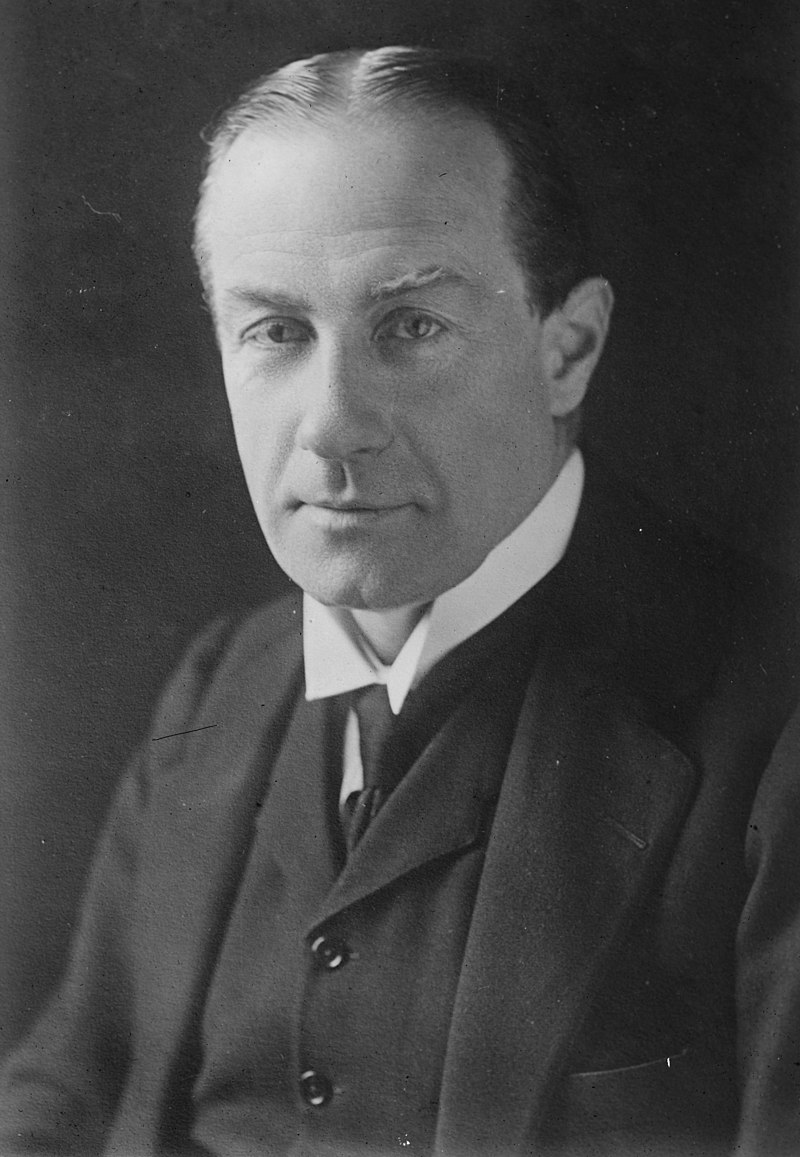Stanley Baldwin

Stanley Baldwin, 1st Earl Baldwin of Bewdley (3 August 1867 – 14 December 1947) was a British Conservative statesman who dominated the government of the United Kingdom between the world wars, serving as prime minister on three occasions.
Born to a prosperous family in Bewdley, Worcestershire, Baldwin was educated at Hawtreys, Harrow School and Trinity College, Cambridge. He joined the family iron and steel making business and entered the House of Commons in 1908 as the Member of Parliament for Bewdley, succeeding his father Alfred. He served as Financial Secretary to the Treasury (1917–1921) and President of the Board of Trade (1921–1922) in the coalition ministry of David Lloyd George and then rose rapidly: in 1922, Baldwin was one of the prime movers in the withdrawal of Conservative support from Lloyd George; he subsequently became Chancellor of the Exchequer in Bonar Law's Conservative ministry. Upon Bonar Law's resignation due to health reasons in May 1923, Baldwin became Prime Minister and Leader of the Conservative Party. He called an election in December 1923 on the issue of tariffs and lost the Conservatives' parliamentary majority, after which Ramsay MacDonald formed a minority Labour government.
After winning the 1924 general election, Baldwin formed his second government, which saw important tenures of office by Sir Austen Chamberlain (Foreign Secretary), Winston Churchill (at the Exchequer) and Neville Chamberlain (Health). The latter two ministers strengthened Conservative appeal by reforms in areas formerly associated with the Liberal Party. They included industrial conciliation, unemployment insurance, a more extensive old-age pension system, slum clearance, more private housing and expansion of maternal and childcare. However, continuing sluggish economic growth and declines in mining and heavy industry weakened Baldwin's base of support and his government also saw the General Strike in 1926 and the Trade Disputes and Trade Unions Act 1927 to curb the powers of trade unions.
Baldwin narrowly lost the 1929 general election and his continued leadership of the party was subject to extensive criticism by the press barons Lord Rothermere and Lord Beaverbrook. In 1931, with the onset of the Great Depression Labour Prime Minister Ramsay MacDonald formed a National Government, most of whose ministers were Conservatives, and which won an enormous majority at the 1931 general election. As Lord President of the Council, and one of four Conservatives among the small ten-member Cabinet, Baldwin took over many of the prime minister's duties due to MacDonald's failing health. This government saw an Act delivering increased self-government for India, a measure opposed by Churchill and by many rank-and-file Conservatives. The Statute of Westminster 1931 gave Dominion status to Canada, Australia, New Zealand and South Africa, while establishing the first step towards the Commonwealth of Nations. As party leader, Baldwin made many striking innovations, such as clever use of radio and film, that made him highly visible to the public and strengthened Conservative appeal.
In 1935, Baldwin officially replaced MacDonald as prime minister, and won the 1935 general election with another large majority. During this time, he oversaw the beginning of the rearmament process of the British military, as well as the abdication crisis of King Edward VIII. Baldwin's third government saw a number of crises in foreign affairs, including the public uproar over the Hoare–Laval Pact, the remilitarisation of the Rhineland and the outbreak of the Spanish Civil War. Baldwin retired in 1937 and was succeeded by Neville Chamberlain. At that time, Baldwin was regarded as a popular and successful prime minister, but for the final decade of his life and for many years afterwards he was vilified for having presided over high unemployment in the 1930s and as one of the "Guilty Men" who had tried to appease Adolf Hitler and who had supposedly not rearmed sufficiently to prepare for the Second World War. Today, modern scholars generally rank him in the upper half of British prime ministers.













































































0 comments
Sign in or create a free account